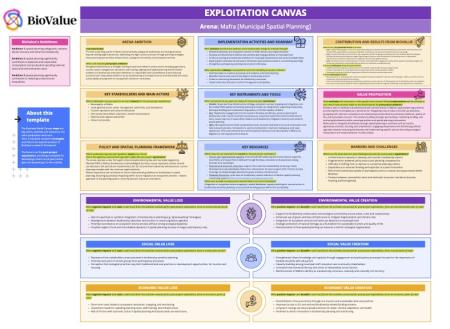
Area characterisation:
Municipal spatial planning in Portugal: The current Master Plan of Mafra Municipality approved, in 2015, a revision of the previous plan of 1995. The spatial planning process is ongoing, using the legally established framework of spatial planning and management instruments, with its respective SEA. One of the main justifications for this revision was that the ‘idealised’ land use model of 1995 was not compatible with the territorial reality, mainly in terms of the safeguard of natural values, and biodiversity, for identity preservation in contexts of increased tourism demand. It was considered that Mafra’s natural identity is one of the differentiation and competitiveness factors of the Lisbon Metropolitan Area dynamics.
Objective:
The case study aimed to embed biodiversity and ecosystem services into Mafra’s spatial planning system, going beyond minimum legal requirements. Through stakeholder participation and co-creation, it sought to align land-use decisions with ecological values, balancing tourism, agriculture, housing, and conservation to foster long-term environmental resilience and community well-being.
Resources
Financing:
This project has received funding from the European Union’s Horizon Europe Research and Innovation Programme under Grant Agreement No 101060790.
Potential impacts/benefits:
Through BioValue, Mafra gained tools and methods—like ecosystem services mapping, participatory formats, and multifunctional land-use design—that enabled biodiversity to be embedded in the revised PDM. Implementation activities such as biodiversity-sensitive planning guidelines, green and blue infrastructure expansion, and municipal staff training strengthen ecological connectivity and climate adaptation. For people, these measures foster environmental literacy, cross-departmental collaboration, and new economic opportunities through eco-tourism and nature-based solutions.
Actions:
This case will explore how the three instrumental perspectives are advancing the promotion of biodiversity in actions already undertaken or, by engaging multiple stakeholders, create dialogical regimes towards enhancing transformative capacity to promote biodiversity.
Contacts:
Ana Paula Rosa Silva Soares
